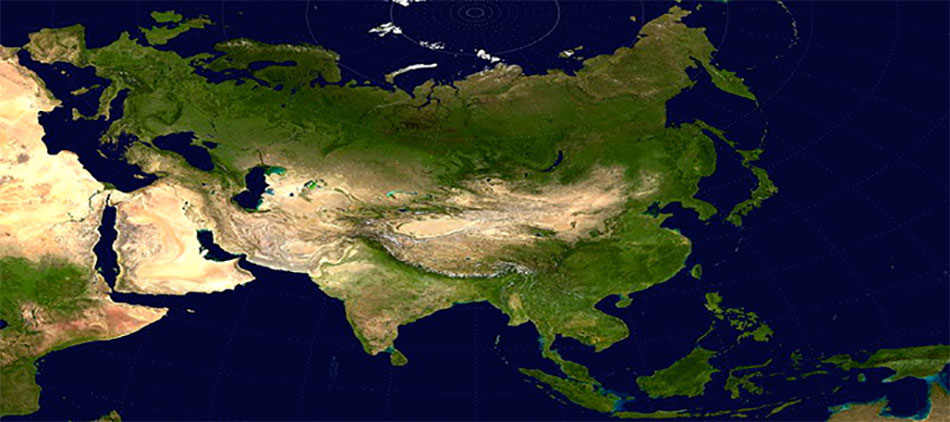
Hosting more than 60% of the world's population, Asia is currently the biggest online gambling market in the iGaming industry. This does not come as a surprise as it is the largest continent on the planet. The growth of the market in Asian countries like China, Japan, Philipines, Thailand, and Singapore is highly contributed to the increasing use of mobile devices and tablets. As well, Asia has a rich history when it comes to gambling with most popular casino games like Keno originating from there.
When compared to the UK, Asia is doing a great job. The UK is the largest online gambling market in the world. The answer is simple. Because of the low legal limitations regarding online gambling. Also, the accessibility to a fast and stable internet connection in the UK gives it an added advantage over the Asian players.
Whilst the land-based casino industry is excelling in Asia, unfortunately, the same cannot be said for the online casino. The greed to control the gambling industry must lead to great differences in gambling laws among Asian nations. As a matter of fact, each Asian country has its laws regarding online gambling. While some countries limit gambling to tourist, non-residents, and experts, others strict no matter who you are and with very severe punishments to the lawbreakers.
In this blog post, you will learn all there is regarding online casino gambling in Asia. We'll discuss the state of legal gambling in some of the leading Asian countries and regions and the future of the online industry.
The Legal Overview of Online Gambling in Asian Countries
Macau
Macau is not a country but a special administrative region on the southern coast of China. It boasts of a capitalist economy and is also the densely populated region on the planet earth. Macau is not governed by the Chinese laws, which is why their gambling industry is flourishing more than China's.
In fact, gambling has been legal in this region since the 19th century when I was still a Portuguese colony. It comes with no surprise now that it is one of the leading gambling destinations in the world. They call it the "Monte Carlo of the Orient". Gambling is legal for both tourists and locals in this region. This has greatly contributed to the revenue which has overtaken that of Las Vegas.
The Gaming Inspection and Coordination Bureau (DCIJ) is the one responsible for overseeing and regulating of all land-based gambling activities in Macau. It is the home of more than 30 reputable brick and mortar casinos including Galaxy Entertainment, MGM Resorts International, and Las Vegas Sands.
Currently, there are no laws allowing or restricting online gambling in Macau, that is why the residents can access different online gambling platforms and play their favorite casino games.
Thailand
The people of Thailand love gambling and their gambling industry is regulated by multiple laws. As at now, legal gambling is only restricted to the National Lottery and horse racing which are hosted in their capital Bangkok. Whereas the horse races are reserved for the high class in the country, the low class can gamble in the national lottery games.
Thailand has a funny gambling legislation called the Gambling Act, B.E of 1935 which differentiates gambling on List A games and List B games. The List A games include betting on animal games and games of luck like slots and roulette while List B is all inclusive - casino games, sports bettings etc.
Due to the strictness of gambling laws, the illegal gambling market is booming. Most Thai online punters are using foreign casino gambling websites to access sports betting, poker, among other casino games. However, the biggest challenge for players is depositing and withdrawing their funds.
Singapore
Since 2005, gambling has been on the increase in Singapore. This is as a result of the local government legalizing land-based gambling. However, the integrated resorts in the country are allowed to dedicate not more than 5% of the space to gambling investors. In order to reduce the rate of brick and mortar gambling, the government has introduced an entry fee of SGD100 in all land-based casinos on all Singapore residents.
The case is even worse when it comes to online gambling in the country. All forms of remort or online gambling are illegal according to the Remote Gambling Bill of 2014. But there is an exception to the operators who have been given a special license by the law. As a matter of fact, any forms of advertisement or promotion related to online gambling is prohibited by the Singaporean laws. The same with carrying out any forms of transactions between online casinos. All those who fail to adhere to these laws risk up to 6 years imprisonment.
Philippines
The Philippines have perplexing laws when it comes to gambling. Currently, the country's gambling industry is overseen and regulated by two bodies, the Philippine Amusement and Gaming Corporation or PAGCOR. This one is in charge of licensing and regulation of all forms of land-based gambling. The games in this category include sports betting, bingo, games of chance like roulette, poker, and slots. This body is also responsible for licensing the e-games (not online casino games).
The Cagayan Economic Zone Authority - CEZA is the body responsible for all forms of online gambling. What is surprising is that online casino operators with the CEZA license are restricted from offering their casino games and services to the Philippines. This explains why gambling on offshore platforms is legal. The Philippines are free to gamble on any online foreign platform as long as it accepts players from the region.
Japan
Japan as a country does not recognize most forms of gambling. The only accepted games include scratch cards, lottery, and sports betting. The most common game is Pachinko, which has a closes resemblance to the arcade games.
Unfortunately, there are no land-based casinos to offer traditional games like roulette, baccarat, and blackjack to the locals. Nonetheless, the Japanese legislatures have already passed a bill to legalize land-based gambling in the territory. The bill is expected to be effective in 2020.




